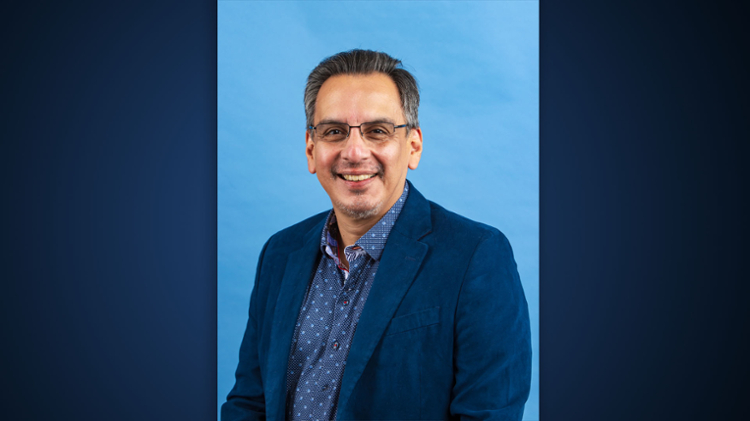TAMU-CC Professor Helps Shine Light on Dementia Unawareness in Nueces County
Dementia Unawareness in Nueces County
The study, “Dementia Diagnosis Unawareness and Caregiver Burden in a Multi-ethnic Cohort,” which was recently accepted by the Journal of General Internal Medicine, paints a startling picture: four out of five people with probable dementia in these communities don’t even know they have it.
Read the Full StudyCORPUS CHRISTI, Texas — Imagine a family gathered in their living room, their laughter filling the air, masking a growing concern. Someone — a parent, grandparent, or loved one —starts forgetting little things. Over time, those little things become big things. Yet, no one in the room recognizes it as dementia because a doctor hasn’t named it.
This is the reality for many families in Nueces County, as uncovered by a study led by University of Michigan researchers in partnership with Dr. Xavier Gonzales ’01, Research Associate at Texas A&M University–Corpus Christi and co-investigator for the BASIC Cognitive project.
BASIC Cognitive is a project that has been conducting research in the Corpus Christi area since 1999 and is led by Dr. Lewis Morgenstern from the University of Michigan. The project has had an ongoing partnership with the TAMU-CC College of Science and the Corpus Christi-Nueces County Public Health District.
Their study, “Dementia Diagnosis Unawareness and Caregiver Burden in a Multi-ethnic Cohort,” which was recently accepted by the Journal of General Internal Medicine, paints a startling picture: four out of five people with probable dementia in these communities don’t even know they have it. The reason? They’ve never received a formal diagnosis. This gap in diagnosis is even more pronounced among Hispanic participants who were 19% more likely to be unaware of their condition.
“Dementia often goes undiagnosed for several reasons,” Gonzales said. “The diagnostic process can be time-intensive, and some doctors may feel uneasy delivering a diagnosis for an incurable condition. In some cases, doctors wait for patients or their families to raise memory concerns rather than initiating these conversations themselves.”
The study examined the impact of a dementia diagnosis on caregivers and found that it does not always lessen their burden. While early diagnosis can help families plan and access support services, the reality can be emotionally overwhelming. Families often struggle to come to terms with a loved one’s diagnosis and the increased responsibilities it brings, such as managing daily care. These challenges are compounded by limited access to caregiver training and resources, especially in underserved communities.
“What’s important to note about this study is that without the diagnosis, people are not able to get the necessary health services they need for dementia,” Gonzales said. “It is important for families and caretakers to share memory concerns with their loved one’s doctors.”
Josh Martins-Caulfield, first author of the study, highlighted the important role of patient-doctor relationships in addressing these gaps. Building stronger communication channels between patients, families, and health care providers could make a significant difference.
The study also emphasized the unique challenges faced by multi-ethnic populations in the health care system. Addressing these challenges requires building trust and incorporating cultural traditions into health discussions, which can make it easier for patients to share sensitive concerns like memory loss.
The researchers believe these findings point to opportunities for improvement in dementia care. Enhancing physician training, fostering culturally competent care, and expanding resources for caregivers are critical steps in ensuring that individuals with dementia and their families receive the support they need.
“There is definitely a need for proactivity in dementia diagnosis and screenings,” Gonzales said. “We want patients and their families to receive the guidance and support they need at every stage of dementia”
Co-authors on the study include Dr. Emily Briceño, Wen Chang, Nelda Garcia, Dr. Steven Heeringa, Dr. Kenneth Langa, Dr. Deborah Levine, Dr. Roshanak Mehdipanah, Dr. Lewis Morgenstern, and Dr. Darin Zahuranec from the BASIC Cognitive project.
Additional information: BASIC Cognitive and the TAMU-CC College of Nursing and Health Sciences have a Master Internship Agreement in place to provide unique opportunities for TAMU-CC students to gain hands-on experience and contribute to meaningful projects. Islander students who are interested in learning more can email Dr. Xavier Gonzales at Xavier.gonzales@tamucc.edu or Nelda Garcia at neladg@med.umich.edu.

